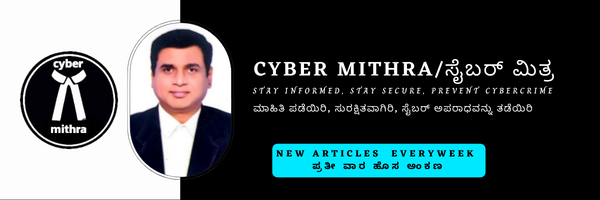Cyber Voyeurism Crime: What You Need to Know
Cyber voyeurism crime is in news a lot nowadays thanks to improved technology. Let’s look at some recent news articles :
- A man working in the canteen of a prestigious engineering college in India was caught while using his mobile phone camera to capture the scenes inside washrooms of the women’s hostel every day.
- A Union woman minister had reported the presence of a camera in a trail room of a top brand clothing store in a prestigious mall in Goa.
- A software engineer had hacked more than 300 computers and recorded many private scenes through their computer’s camera without their knowledge.
- A young woman receives an automatic shampoo dispenser as a gift, which was later found to contain a small camera and wifi transmitter to capture and transmit video from inside bathroom where it is kept.
All the above cases are different aspects of cyber voyeurism cyber crime.
In simple words, voyeurism is a perverted mentality in which someone secretly enjoys watching other’s undressing, sexual activity and intimate acts without that person’s consent. Voyeurism includes viewing, capturing or distributing their images or videos without their consent or knowledge in a private context. With the advancement of technology, digital cameras, smartphones etc. are used to capture images or videos in public places like changing rooms or in their private rooms like bedroom, bathroom or wherever individuals normally expect privacy is called cyber or digital voyeurism cybercrime. The motive of such cyber criminals may include making easy money, jealousy, obsession, revenge or hatred.
Cyber Voyeurism How to Protect Yourself from Cyber Crimes:-
- Give permissions to use the camera of your computer and smart phone to the app/applications only if absolutely necessary, disable the camera if possible and enable it when needed.
- Do not click any hyperlink, scan QR code, and install any app/application sent by strangers.
- Always use strong passwords and change them frequently.
- Use good antivirus and firewall software and update it regularly.
- Use vpn software, which hides information about your location from others.
- Check for cameras in new private spaces, and check if any battery/electricity operated items are equipped with cameras is placed anywhere there.
If you are a victim of Cyber Voyeurism crime :-
Immediately call 1930 cyber helpline or file a complaint at cybercrime.gov.in or at cyber or nearest police station. Report such fraudsters and fraud to relevant authority or social media site. Block those fraudulent users but don’t delete any related information, which can be used as evidence against criminals. If you have installed any software given by a stranger or clicked on a hyperlink or scanned a provided QR code, then uninstall that software and change passwords / PINs of all your important accounts like banking, email etc. Better is to factory reset or format your device.
Remedies legally available (in India) to victims :-
Lodge a criminal complaint at nearby cyber or regular police station under :
- Section 354 A to D(online abuse or crimes against women in cyberspace), Section 378(Theft), Section 424(extract data illegally), Section 441(criminal trespass), Section 499(defamation), Section 500(punishment for slander), Section 503(Threats to harm a person’s reputation), Section 507(Criminal Intimidation), Section 509(Insult privacy and modesty) of Indian Penal Code(IPC)
- Section 43 (Penalty and compensation for damage to computer, computer system, etc), section 66 (punishment for computer related offences – data theft, transmitting virus into a system, destroying data, hacking, or denying access to the computer or network to an authorized person), section 66C(penalties for identity theft and states that anyone who fraudulently or dishonestly uses a person’s identity information), Section 66D (punishment for fraud by impersonation using computer resources), Section 67(publish, transmit, or cause the distribution of obscene content), and Section 67A(publishing, transmission, or facilitating the transfer of sexually explicit content) of The Information Technology Act 2000/08
- Other than this relevant sections from The Immoral Traffic Prevention Act,1956 and Protect children from sexual abuse (POCSO) Act,2012


Pretty nice post. I just stumbled upon your blog and wanted to say that I have
really enjoyed surfing around your blog posts.
In any case I’ll be subscribing to your feed and I hope you write again soon!
Have a look at my blog post … vpn coupon code 2024
I don’t think the title of your article matches the content lol. Just kidding, mainly because I had some doubts after reading the article.